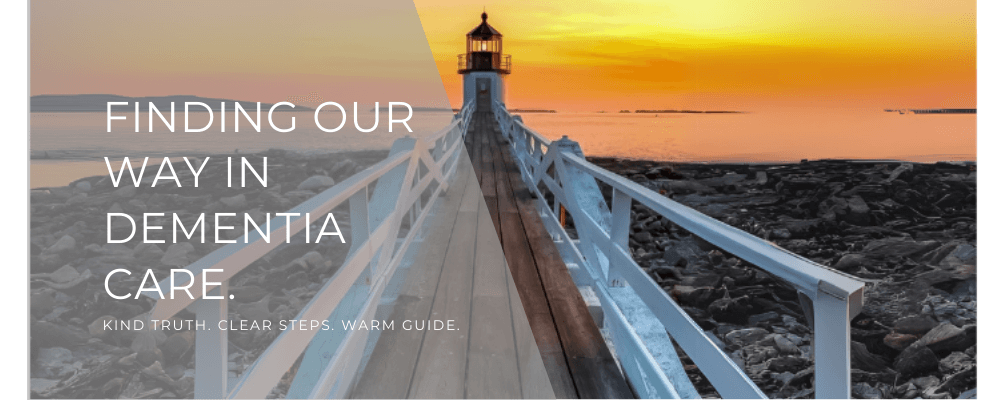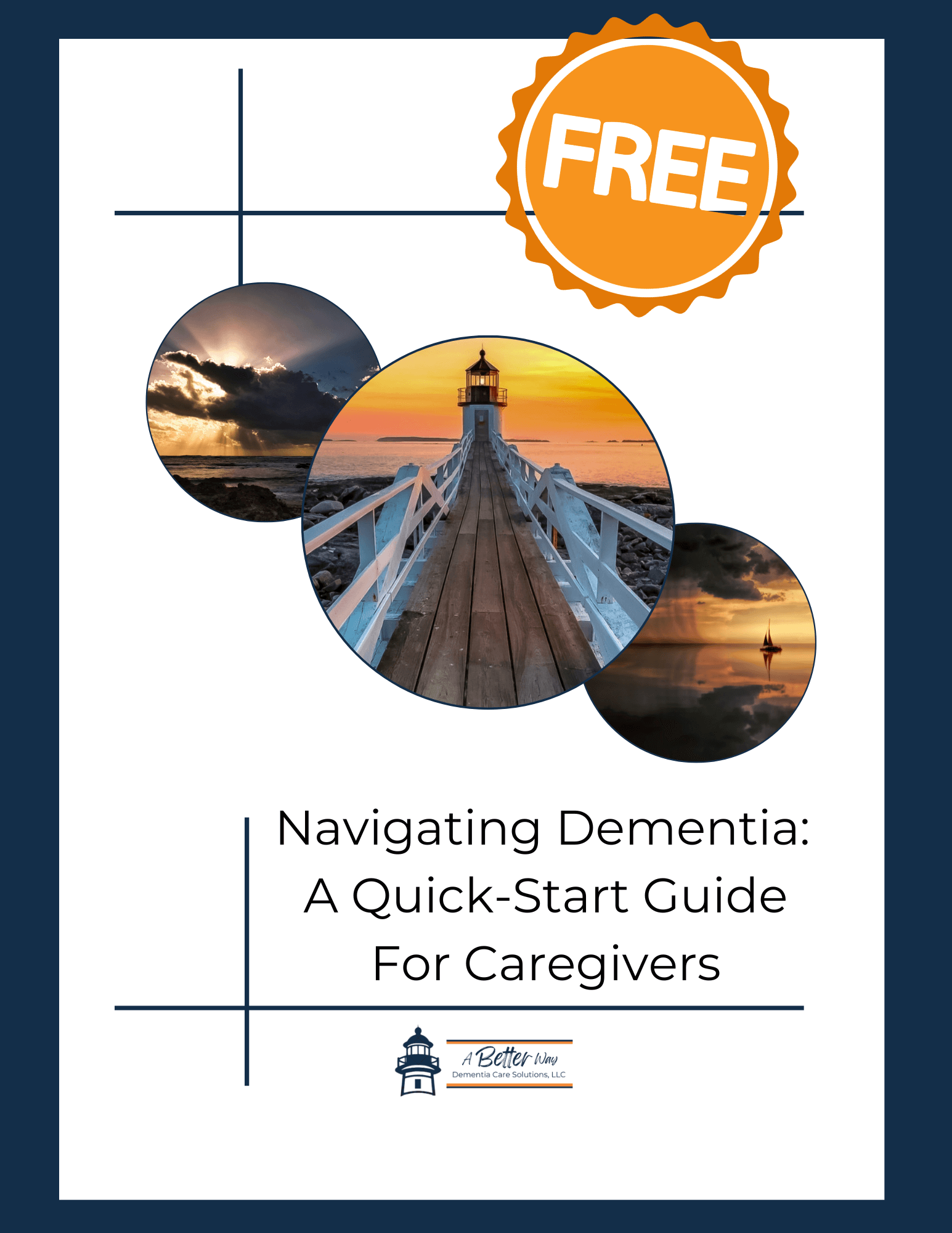
A Lifeline for Caregivers
If you are caring for someone with dementia, chances are you have felt stretched thin. The endless appointments, medication changes, and late-night confusion can leave you wondering: *Am I doing enough? Am I doing it right?*
You are not alone. Across the U.S., millions of families are on this journey, and many share the same struggles: burnout, isolation, financial strain, and the fear of what is next.
That is why the Centers for Medicare & Medicaid Services (CMS) launched the GUIDE Program in July 2024. Its full name is Guiding an Improved Dementia Experience. That is exactly the goal: to improve life for people living with dementia while easing the burden for the caregivers who love them.
This post will give you a clear, compassionate overview of the GUIDE Program: what it is, why it exists, and how it is designed to help you breathe easier in your caregiving journey.
What Is the GUIDE Program?
The GUIDE Program is a nationwide, eight-year demonstration project created by CMS. It is not just another policy. It is a direct response to what caregivers have been asking for: coordinated dementia care, support at home, and relief from feeling like you have to figure everything out on your own.
In plain terms, GUIDE is a free support system for families enrolled in Original Medicare (Parts A & B) who are caring for someone with dementia. It brings together health care providers, community services, and caregiver resources under one coordinated program.
Instead of you chasing down answers from ten different offices, GUIDE provides a Care Navigator: a dedicated person whose job is to guide you through the maze of dementia care.
Why CMS Created the GUIDE Program
For decades, dementia care has been fragmented. Families were left to manage on their own, bouncing between specialists, emergency rooms, and long-term care facilities.
Research shows that:
- Caregivers of people with dementia provide more hours of unpaid care than caregivers of any other condition.
- Over 60% report high emotional stress, and one-third experience serious physical health impacts.
- Unplanned hospitalizations are more common among people with dementia, often due to avoidable complications like infections, falls, or medication issues.
CMS recognized that this was not sustainable. The GUIDE Program was born out of the need to support both the person living with dementia and their caregiver with the aim of reducing burnout, lowering hospitalizations, and keeping people safely at home for longer.
The Heart of GUIDE: Supporting Caregivers
At its core, GUIDE is not just about the medical side of dementia. It is about you, the caregiver. The program acknowledges what caregivers have known all along: dementia is not just a medical diagnosis, it is a family journey.
Here is how GUIDE directly supports caregivers:
- A Care Navigator: Someone you can call for questions, guidance, and reassurance.
- 24/7 Support Line: So you are never alone at 2 a.m. when agitation or wandering spikes.
- Caregiver Education: Training and resources that help you feel more confident in daily care.
- Respite Services: Coverage (up to about $2,500 annually) may be available if your care situation meets specific complexity criteria. Your GUIDE team will explain eligibility.
- Care Planning: Coordinated, holistic plans that include both medical care and community supports like meals, transportation, and home safety.
It is about giving you breathing room, confidence, and the assurance that you do not have to carry this alone.
How the Program Works in Practice
Imagine this:
You care for your spouse, who is in the mid-stage of dementia. You often feel unsure about what is normal behavior, what is a medical issue, and when to call the doctor. Nights are hard, and you rarely get uninterrupted sleep.
Through GUIDE, you are paired with a Care Navigator who gets to know your spouse's needs, and your needs. Together, you create a personalized care plan. You get training on how to respond to nighttime agitation. You learn that you are eligible for respite hours, so you can finally attend your granddaughter's soccer game without worry.
And when things escalate at midnight? You can call a support line and talk to someone who understands dementia, instead of rushing to the ER out of panic.
That is GUIDE in action.
What Caregivers Need to Know About Services
The GUIDE Program includes:
- Comprehensive Assessment: A full review of the person's medical, social, and daily living needs.
- Care Navigator Assignment: Your point person for ongoing questions and coordination.
- Interdisciplinary Care Team: Medical providers, social workers, and other professionals working together.
- Caregiver Training: Guidance on communication, behavior changes, safety, and self-care.
- Respite Services: Funding you may be able to use for short-term relief, either at home, in an adult day program, or in a care facility. (Respite is limited to certain care complexity tiers and capped annually.)
- Connection to Resources: Help with finding meal programs, transportation, or community services.
And importantly: these services are provided at no cost to you if you qualify.
The Human Side: Why This Matters
Caregivers often put their own health last. It is common to hear, "I'll rest later" or "I can't take a break right now." But without support, caregiver burnout leads to declining health, depression, and even hospitalization.
By offering respite, education, and 24/7 backup, GUIDE is designed to help you sustain your role without losing yourself in the process.
Because the truth is: when you are supported, the person you care for is supported, too.
Common Caregiver Questions About GUIDE
1. Is it really free?
Yes. If the person you care for is enrolled in Original Medicare and meets eligibility, GUIDE services come at no cost to you.
2. Do I need a referral?
Most often, you will start with your doctor or by checking the CMS list of participating providers.
3. What if my loved one is in Medicare Advantage?
Currently, GUIDE only applies to Original Medicare beneficiaries. However, CMS may expand this in the future.
4. What if we live in a rural area?
Some GUIDE services can be delivered virtually, so even if providers are not nearby, support may still be accessible.
5. Is GUIDE available everywhere right now?
Not yet. Some organizations began July 1, 2024, while others (New Program Track) started July 1, 2025. Availability depends on where you live.
Journal Prompt for Caregivers
Take a moment today to write down: What is the hardest part of caregiving for me right now? What kind of support would bring me the most relief?
This reflection can guide your conversations with a Care Navigator once you are enrolled in GUIDE.
You Are Not Alone
Asking for help is not weakness. It is wisdom. The GUIDE Program exists because your care, your love, and your health matter.
Call to Action
This post is the first in a 4-part series on the GUIDE Program. In our next article, I will walk you step-by-step through eligibility and enrollment with direct links so you can get started right away.
Want to make sure you do not miss it? Click Here to subscribe to my weekly caregiver newsletter. You’ll receive weekly updates, free resources, and caregiver tips.
NOTES
1. Centers for Medicare & Medicaid Services (CMS). GUIDE Model: Guiding an Improved Dementia Experience. https://www.cms.gov/priorities/innovation/innovation-models/guide
2. Centers for Medicare & Medicaid Services (CMS). GUIDE Model Frequently Asked Questions (FAQs). / https://www.cms.gov/priorities/innovation/guide/faqs
3. Centers for Medicare & Medicaid Services (CMS). GUIDE Model: Patient & Caregiver Fact Sheet. https://www.cms.gov/files/document/guide-model-patient-caregiver-fs.pdf
4. Alzheimer's Association. Medicare GUIDE Program for Dementia Care. https://www.alz.org/help-support/caregiving/financial-legal-planning/medicare-guide-program-for-dementia-care
5. LECOM Health. CMS GUIDE Program. https://lecomhealth.com/lecom-senior-services/cms-guide-program/
6. Andwell Health. Dementia Care Management & GUIDE Program. https://andwell.org/dementia-care-management-guide/
7. Synapticure. CMS GUIDE Program Overview for Partners. https://www.synapticure.com/for-partners/cms-guide-program
8. ThoroughCare. CMS GUIDE Program: Support for Dementia Patients and Caregivers. https://www.thoroughcare.net/blog/cms-guide-program-dementia-patients-caregivers
Affiliate Disclosure
A Better Way - Dementia Care Solutions, LLC participates in the Amazon Associates Program, which means we earn a small commission when you buy through links on our site, at no extra cost to you. We only recommend products that we believe can help caregivers on their journey.
Disclaimer
The information provided in this blog is for educational purposes only and should not be considered medical advice. Always consult with a doctor or a licensed physical therapist before starting any new exercise routine, using assistive devices, or following the recommendations mentioned. Every individual's needs are different, and professional guidance is essential to ensure safety and appropriateness of care.
Want to keep figuring this out together?
Subscribe to Finding Our Way in Dementia Care and get honest stories, helpful tips, and gentle support delivered to your inbox every week. Just real talk, grounded care, and space to breathe.
Subscribe to Finding Our Way in Dementia Care and get honest stories, helpful tips, and gentle support delivered to your inbox every week. Just real talk, grounded care, and space to breathe.
Kind truth. Clear steps. Warm guide.

















0 Comments